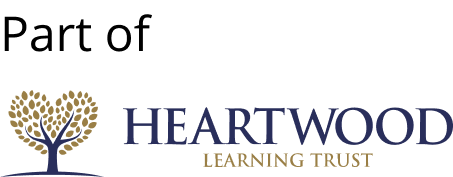Curriculum Intent
At Graham School, we believe all students should access a broad and balanced curriculum which still recognises that all students are individuals, so we constantly review and, where necessary, modify our curriculum to meet the needs of all of our learners.
At the core of our curriculum lies our school values:
- H – Honesty
- E – Empathy
- A – Aspiration
- R – Resilience
- T – Teamwork
These values underpin our curriculum offer and we look to interweave these values through all activities we undertake at Graham School, both in and outside of the formal classroom environment.
We believe the curriculum supports all of these values and much of our decision making is done with an emphasis on aspiration and building resilience in the young people we provide for as we believe these are characteristics we need to strengthen within our school community.
An ambitious curriculum motivates students and leads to increasingly successful outcomes as our young people learn skills and knowledge that equip them well for their future careers. Many of our learners take a mixture of academic and vocational courses to create a greater choice post 16 and raise aspirations. They are also able to access a wide variety of extra curricular activities which enhance their understanding of the wider community and help to further develop our core values.
We believe we have built a curriculum around choices which allow learners to:
- study what they enjoy and value allowing them to make good progress
- study subjects in depth and develop further in their cultural capital
- access a range of subjects to allow them to fulfil their aspirations
- access a wide curriculum, regardless of their academic ability

Teaching and Learning
At Graham School, through an unrelenting focus on quality-first teaching, we aim to provide an environment that inspires young people to believe in themselves and facilitates a climate where they can thrive. We Ensure that our teaching philosophy is explicitly linked to educational research and best practice using the Education Endowment Foundation’s recommendations and Teaching WalkThrus. We plan and design lessons that are inclusive and meet the needs of all students. Lessons provide challenge and support, and focus on the progress that students make in terms of them knowing more, remembering more and being able to do more.
In order to ensure that the teaching at Graham School is inclusive, we use the following strategies in lessons:
- A clearly sequenced curriculum;
- Pre teaching of vocabulary and ideas;
- Explicit teaching of new vocabulary taking a mastery approach
- Chunking of content and scaffolding;
- Modelling;
- Retrieval Practice and spaced learning;
- Effective questioning (cold calling & probing questioning);
- Dual coding and visual prompts and cues;
- Live marking and feedback throughout all lessons
In addition, we adopt the ‘The Five-a-Day principle’ as recommended by the Education Endowment Foundation for pupils with SEND. Ultimately, our moral purpose encompasses our ultimate aim of serving others, growing together and living life to the full.
Curriculum Implementation
In Years 7, 8 and 9 we offer a broad and balanced curriculum which is rich, ambitious and well sequenced. All teachers share their ‘sequence of learning’ with students covering Key Stages 3 and 4 as well as links to both KS2 and post 16 courses to give them a holistic picture of the qualifications they are following. We believe the best start to secondary education builds on what students have learnt in Key Stage 2. As such we have good links with our feeder primary schools and we offer transition events in a variety of ways to the local community.
All students study Maths, English, Science, Geography, History, PE, Art, Music and Computing at key stage 3. Students also access food, textiles, workshop technology, dance and drama once per fortnight in both years 7, 8 and 9 allowing them to cover the full National Curriculum.
Students study French in years 7, 8 and 9 but those identified as requiring additional literacy support, have extra time consisting of bespoke literacy tuition to support whilst still accessing a smaller amount of French content.
All our students also follow a comprehensive ‘Philosophy and Ethics’ course through one lesson per fortnight plus additional time in form. All students also do an hour per week of Religious Education, this course covers all statutory requirements of the RSE and religious education.
At Key Stage 4, we provide a range of courses, well matched to the needs and interests of the students. We provide the opportunity to study the full EBacc as well as many varied vocational options including BTEC, GCSE, CNC, CACHE and others. All students study either a modern foreign language, history, geography, computer science or separate sciences. We currently offer 2 modern foreign languages at GCSE. We strongly encourage students to take the full EBacc however, we do not insist upon it. A full list of the qualifications we offer at Key Stage 4 can be found on our website.
Our students are placed onto one of 4 pathways which determines their curriculum structure. These decisions are based on prior attainment plus discussion with the students themselves to ensure their curriculum is suitable. Those who require additional support traditionally sit 8 GCSE equivalent courses whilst the majority of students sit 9 GCSE equivalent courses during Key Stage 4.
Some students have a more bespoke curriculum which includes the ‘Live and Living Skills’ qualification which they study alongside an EBacc course and one other GCSE of their choosing. These students are carefully selected with the support of the school’s SENDCo.
Students complete the options process at the end of Year 9 having been thoroughly prepared through options evening, 1 to 1 careers appointments and a variety of careers events. The process takes place with consultation between parents, staff and the schools SENDCo when appropriate. All students also have a work experience week placement during key stage 4 which allows them to gain real insight into the world of work.
Curriculum Diagram
The diagram below shows the curriculum plan for students in each year of school.
At Graham School, Key Stage 4 commences at the start of Year 10.
Any queries about the curriculum should be directed to Mrs Shires.

Key Stage 4
English & Mathematics Bucket
Students’ best English grade from Language/Literature will be doubled for English Attainment 8
- English Language 9-1 GCSE
- English Literature 9-1 GCSE
- Mathematics 9-1 GCSE
EBacc Bucket
Student’s best 3 grades will count towards EBacc Attainment 8
- Combined Science: Trilogy 9-1 GCSE
- Biology 9-1 GCSE
- Chemistry 9-1 GCSE
- Physics 9-1 GCSE
- Geography 9-1 GCSE
- History 9-1 GCSE
- French 9-1 GCSE
- Spanish 9-1 GCSE
- Polish (EAL Students) 9-1 GCSE
- Computer Science 9-1 GCSE
Open Bucket
Student’s best 3 grades will count towards Open Attainment 8 – including any unused English or EBacc grades.
- Art & Design 9-1 GCSE
- Art & Design Photography 9-1 GCSE
- Enterprise and Marketing Level 1/2
- Dance BTEC
- Design and Technology Product Design GCSE 9-1
- Design and Technology Graphic Products NCFE
- Design and Technology Craft NCFE
- Design and Technology Textiles Technology GCSE 9-1
- Engineering 9-1 GCSE
- EAL Engineering Level 2 Vocational
- Drama 9-1 GCSE
- Food Preparation & Nutrition 9-1 GCSE
- Hospitality & Catering L1/2 Vocational
- Health & Social Care Cambridge National
- Creative iMedia Cambridge National
- Music 9-1 GCSE
- OCR Cambridge National Sports Studies Cambridge National
- Psychology GCSE
- Religious Studies B 9-1 GCSE
Personal Development
These qualifications do not count towards the government’s school performance measures or are studied independently, and are offered to students for their own development.
- Level 2 Further Maths Certificate
- Statistics (Individual Study) GCSE 9-1
Examinations
All examinations will be taken during Year 11, except for some module examinations in a minority of subjects in Year 10.


